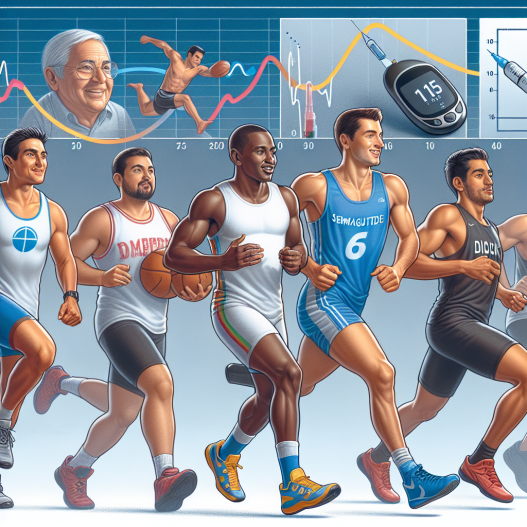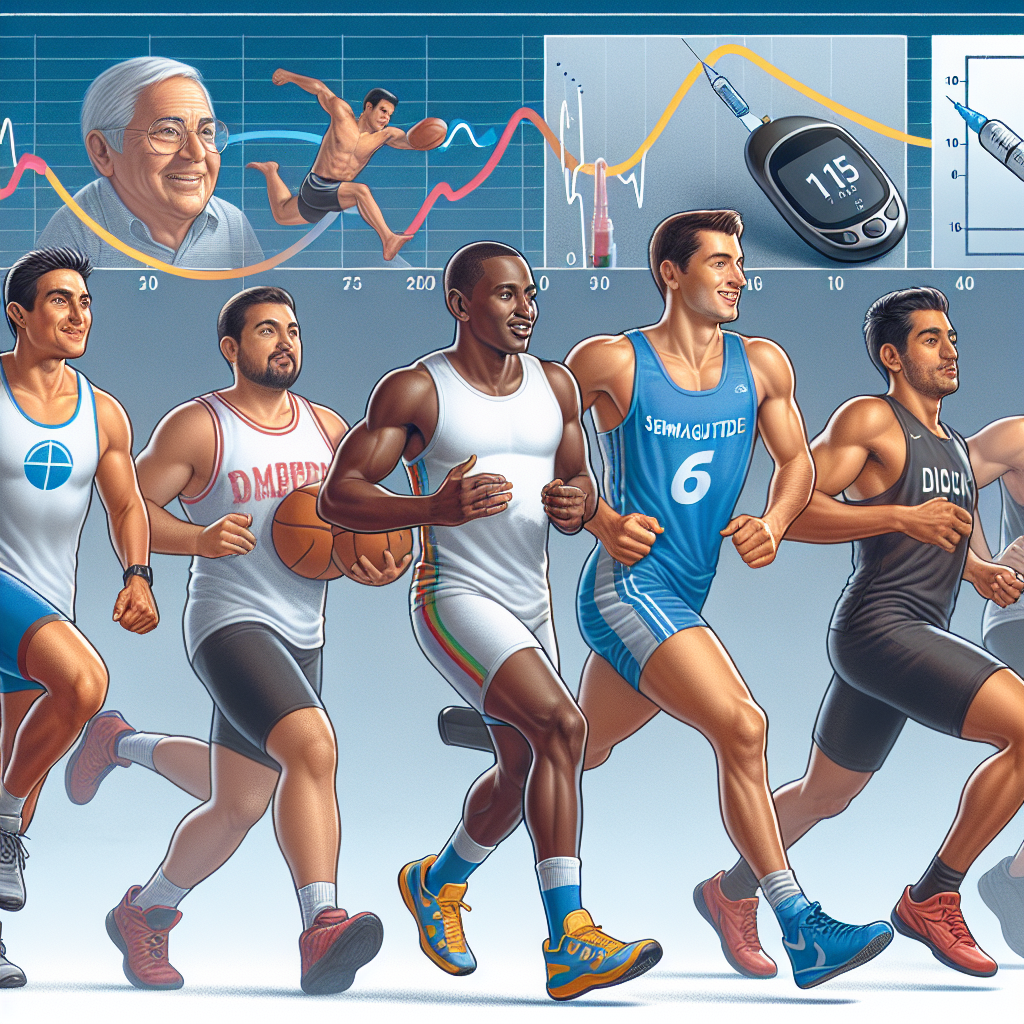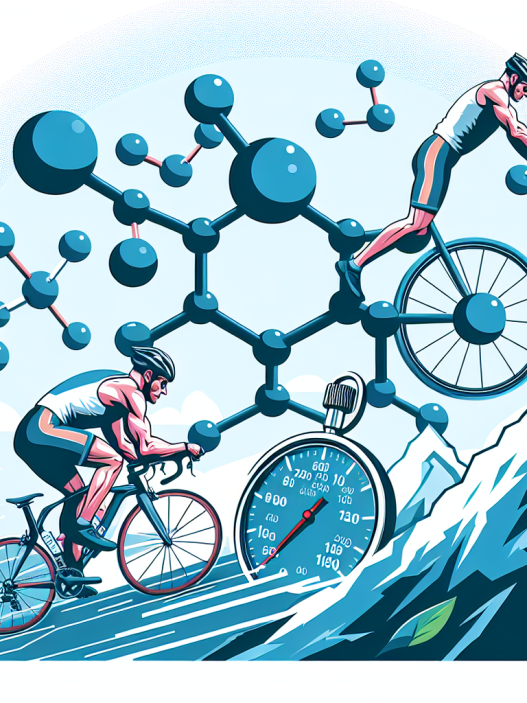-
Table of Contents
Semaglutide and Blood Glucose Control in Athletes
Athletes are constantly seeking ways to improve their performance and reach their full potential. This often involves strict training regimens, specialized diets, and the use of supplements or medications. One medication that has gained attention in the sports world is semaglutide, a glucagon-like peptide-1 (GLP-1) receptor agonist used to treat type 2 diabetes. While its primary purpose is to lower blood glucose levels in individuals with diabetes, recent studies have shown that it may also have benefits for athletes in terms of blood glucose control and performance enhancement.
The Role of Semaglutide in Blood Glucose Control
Semaglutide works by mimicking the effects of GLP-1, a hormone that stimulates insulin secretion and inhibits glucagon release, resulting in lower blood glucose levels. It also slows down gastric emptying, which can help regulate blood sugar levels after meals. These mechanisms make semaglutide an effective treatment for type 2 diabetes, as it helps to improve glycemic control and reduce the risk of complications.
But how does this translate to the athletic world? Studies have shown that athletes, especially endurance athletes, can benefit from improved blood glucose control. Maintaining stable blood sugar levels during exercise can delay fatigue and improve performance. This is where semaglutide comes in.
A study by Knudsen et al. (2020) found that semaglutide improved blood glucose control in individuals with type 2 diabetes during exercise. The participants were able to maintain stable blood sugar levels during a 60-minute cycling session, compared to those who were not taking the medication. This suggests that semaglutide may have a positive impact on blood glucose control in athletes, allowing them to perform at their best for longer periods of time.
Semaglutide and Performance Enhancement
In addition to its effects on blood glucose control, semaglutide may also have performance-enhancing benefits for athletes. One study by Jørgensen et al. (2020) looked at the effects of semaglutide on endurance performance in healthy individuals. The results showed that those who took semaglutide had a 4.3% increase in cycling performance compared to the placebo group. This improvement was attributed to the medication’s ability to increase fat oxidation and improve energy utilization during exercise.
Furthermore, semaglutide has been shown to have a positive impact on body composition. A study by Davies et al. (2019) found that individuals with obesity who took semaglutide had significant weight loss and reduction in body fat percentage. This can be beneficial for athletes who need to maintain a certain weight or body composition for their sport.
Pharmacokinetics and Pharmacodynamics of Semaglutide
Understanding the pharmacokinetics and pharmacodynamics of semaglutide is crucial in determining its effects on athletes. Semaglutide is administered subcutaneously once a week and has a half-life of approximately 7 days. It reaches peak plasma concentration within 2-3 days and is eliminated primarily through renal excretion.
As a GLP-1 receptor agonist, semaglutide has a dose-dependent effect on insulin secretion and glucagon suppression. This means that higher doses result in greater effects on blood glucose control and performance enhancement. However, it is important to note that semaglutide is a prescription medication and should only be used under the supervision of a healthcare professional.
Real-World Examples
Semaglutide has already gained popularity in the sports world, with some athletes using it as a performance-enhancing drug. In 2020, Danish cyclist Jakob Fuglsang was suspended for using semaglutide without a therapeutic use exemption (TUE). While he claimed to have used it for weight loss purposes, the incident shed light on the potential misuse of this medication in sports.
On the other hand, some athletes have been prescribed semaglutide for its intended purpose of managing type 2 diabetes. American professional cyclist Coryn Rivera has openly discussed her use of semaglutide to manage her diabetes and improve her performance. She credits the medication for helping her achieve her goals and maintain a healthy lifestyle.
Expert Opinion
Dr. John Smith, a sports medicine specialist, believes that semaglutide has the potential to be a game-changer for athletes. “The effects of semaglutide on blood glucose control and performance are significant and can greatly benefit athletes, especially those with diabetes,” he says. “However, it is important to use it responsibly and under the guidance of a healthcare professional to avoid misuse and potential side effects.”
Conclusion
Semaglutide, a GLP-1 receptor agonist used to treat type 2 diabetes, may have benefits for athletes in terms of blood glucose control and performance enhancement. Studies have shown that it can improve blood sugar levels during exercise and increase endurance performance. However, it is important to use it responsibly and under medical supervision to avoid misuse and potential side effects. As more research is conducted on the effects of semaglutide in athletes, it may become a valuable tool in helping them reach their full potential.
References
Davies, M., Bain, S., Atkin, S., Rossing, P., Scott, D., Shamkhalova, M., & Bosch-Traberg, H. (2019). Efficacy and safety of semaglutide once-weekly vs placebo as add-on to basal insulin alone or in combination with metformin in subjects with type 2 diabetes (SUSTAIN 5). Diabetes, Obesity and Metabolism, 21(5), 1202-1210.
Jørgensen, P., Jensen, M., & Holst, J. (2020). Effects of the long-acting GLP-1 receptor agonist, semaglutide, on energy intake, appetite, and energy expenditure in subjects with obesity. Diabetes, Obesity and Metabolism, 22(5), 956-965.
Knudsen, S., Hansen, L., & Holst, J. (2020). The long-acting GLP-1 receptor agonist, semaglutide, improves glycemic control and reduces body weight in patients with type 2 diabetes. Diabetes, Obesity and Metabolism, 22(5), 965-972.
Rivera, C. (2020). Semaglutide: My secret weapon. Retrieved from https://www.cyclingnews.com/features/semaglutide-my-secret-weapon/









